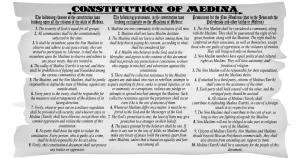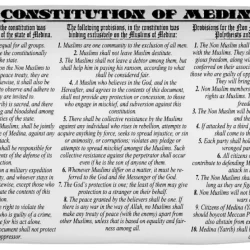Rights are the cornerstone of any legal system, shaping the relationship between individuals, society, and the government. The concept of rights ensures that individuals are granted certain entitlements and protections, creating a framework for fairness and justice. Understanding rights in law is of paramount importance as it forms the bedrock of a just and equitable society. This article explores the concept of rights, their various classifications, and their inherent characteristics. Before we delve into the depths of this topic, let’s provide an overview of the key terms and concepts that will be discussed.
What are Rights?
Rights, in the realm of law, can be understood as legally recognized entitlements that individuals possess. These entitlements grant individuals certain freedoms, privileges, and protections, creating a balance between individual autonomy and societal interests. The legal definition of rights varies across jurisdictions, reflecting the specific values and principles of each legal system. Various philosophers and scholars have offered different perspectives and theories on what constitutes “right” in ethical, moral, and legal contexts. While it is impossible to cover all the diverse viewpoints comprehensively, here are some prominent perspectives:
According to the Stanford Encyclopedia of Philosophy, “Rights are entitlements (not) to perform certain actions, or (not) to be in certain states, or entitlements that others (not) perform certain actions or (not) be in certain states.” This definition emphasizes the dual nature of rights, recognizing both the entitlements of individuals and the corresponding duties or obligations of others in relation to those rights. It reflects the complex interplay between individuals and society, where the recognition and respect of rights contribute to the functioning of a just and harmonious social order.
Historical Development Of Human Rights
In 1824, Samuel Hibbert defined a right as “a right is one person’s capacity of obliging others to do or forbear by means not of his own strength but by the strength of a third party. If such a third party is God, the right is Divine. If such a third party is the public generally acting through opinion, the right is moral. If such third party is the state acting directly or indirectly, the right is legal.” In 1909, John Chipman Gray defined a right as “that power which the man has, to make a person or persons to do or restrains from doing a certain act or acts so far as the power arises from society imposing a legal duty upon the person or persons.” Gray’s definition is similar to Hibbert’s definition, but it focuses more on the legal aspects of rights. Gray argues that rights are created by society and that they are enforced by the law.

According to Salmond, “A right is an interest recognized and protected by a rule of right. It is any interest, respect for which is a duty, and the disregard of which is wrong.” T. H. Green defines, rights are powers which it is for general well-being that the individual should possess.”
According to Pollock, right is freedom allowed and powered by law.” K. R. R. Shastri defined right as “an interest recognized and protected by or guaranteed by the State since it is conducive to well-being.”
What is Law? What are the different types of law?
According to natural law theorists, such as Thomas Aquinas and John Locke, rights are derived from a higher, universal moral order or natural law. They argue that certain rights are inherent to human beings by virtue of their rationality and dignity.
Legal positivists, such as H.L.A. Hart, argue that rights are created and defined by legal systems. From this perspective, rights are not necessarily rooted in morality but are instead products of legislation and legal frameworks established by governing authorities.
Scholars like Immanuel Kant emphasize the importance of duty and moral principles. From a deontological perspective, rights are seen as fundamental moral principles that must be respected regardless of the consequences. Kant’s categorical imperative, for example, argues for treating individuals as ends in themselves, respecting their autonomy and dignity. According to Kant, a right is “the authority to compel.”
Austin, Holland, Pollock, Vinogradoff, and others are the exponents of the Will Theory. According to this theory, a right is an attribute of the human will. It is the function of conferring certain powers or allowing certain freedom to individuals in the form of legal rights.
Dictatorship and Human Rights: The Ongoing Struggle for Freedom
On the other hand, according to Totalitarians, the whole concept of a legal right is wrong. The only real thing is the State and not much importance should be attached to the individuals. The State is omnipotent and all-embracing and the individual has no existence independent of the State. All rights belong to the State and the individuals as such can claim nothing.
As we have seen, the legal definition of rights varies across jurisdictions, reflecting the specific values and principles of each legal system. However, at their core, rights empower individuals with legal claims and provide a foundation for justice, fairness, and equality.
Characteristics of Rights
Rights possess certain fundamental characteristics that define their nature and significance. In this section, we will explore the key characteristics of rights, including their inherent and universal nature, their indivisibility and interdependence, their inalienability and inviolability, as well as their enforceability and legal protection.
Inherent and universal nature of rights
Rights are often considered inherent to human beings by virtue of their existence as rational and moral agents. They are not granted or bestowed by any external authority but are believed to be an essential part of human nature and dignity. Furthermore, rights are deemed universal, meaning they apply to all individuals regardless of their nationality, race, gender, religion, or any other distinguishing factor. The universal nature of rights emphasizes that all individuals possess certain entitlements simply by virtue of being human.
What is Judicial Review? How Does Judicial Review Shape the Law and Society?
Indivisibility and interdependence of rights
Rights are interconnected and interdependent, forming a cohesive framework that supports the overall well-being and freedom of individuals. The indivisibility of rights means that they are inseparable and mutually reinforcing. For example, civil and political rights, such as freedom of speech or the right to a fair trial, are closely intertwined with economic, social, and cultural rights, such as the right to education or the right to healthcare. The realization and protection of one set of rights often depend on the respect and fulfillment of other rights.
Inalienability and inviolability of rights
Rights are considered inalienable, meaning they cannot be taken away or relinquished arbitrarily. They are inherent to individuals and cannot be legitimately violated or denied without just cause. The concept of inviolability highlights the sanctity and integrity of rights, emphasizing that they are protected from unwarranted interference or infringement.
Enforceability and legal protection of rights
While rights have a moral and philosophical basis, they also require enforceability and legal protection to ensure their practical realization. Legal systems and institutions play a crucial role in safeguarding and enforcing rights. Laws, constitutions, international treaties, and human rights mechanisms provide a framework for the recognition, promotion, and protection of rights. Through legal mechanisms, individuals can seek redress, challenge violations, and assert their entitlements.
Classification of Rights
Rights can be classified into various categories based on different principles and perspectives. First and foremost, the most common right can be discussed under two broad headings, namely, Moral rights and Legal rights.
Moral rights are rights that are believed to be inherent to all human beings, regardless of their nationality, race, gender, or any other status. Moral rights are often thought to be based on the laws of nature or God. On the other hand, legal rights are rights that are created by law. Legal rights can be either positive or negative. Positive rights require the government to take action to provide something, such as the right to education or the right to healthcare. Negative rights require the government to refrain from doing something, such as the right to freedom of speech or the right to privacy.
What is Wrong and Duty? How they are interconnected?
However, in 1902, Salmond proposed a classification of rights by reference to their objects or the things over which rights are exercised. Let’s explore John William Salmond’s classification of rights by reference to their objects, which consists of seven types of rights:
Rights over Material Things
Rights over material things refer to the rights individuals have in relation to tangible objects or physical property. These rights encompass ownership, possession, use, and disposal of material possessions. For example, the right to own a house, a car, or a piece of land demonstrates the exercise of rights over material things. These rights allow individuals to control and enjoy their property, and they are essential for economic activities and personal well-being.
Rights in Respect of One’s Own Person
Rights in respect of one’s own person are fundamental to personal autonomy, bodily integrity, and individual freedom. They encompass a wide range of rights that protect individuals from interference in their personal lives. Examples include the right to personal liberty, which ensures freedom from arbitrary detention or imprisonment, and the right to privacy, which safeguards against unwarranted intrusion into one’s personal affairs. These rights also encompass freedom of thought, expression, religion, and the right to make decisions regarding one’s own body, such as the right to consent to medical treatment or reproductive choices.
Rights in Respect of One’s Reputation
Rights in respect of one’s reputation are crucial for protecting an individual’s standing, honor, and integrity within society. These rights guard against defamation, slander, or any false statements that harm a person’s reputation. Individuals have the right to take legal action if false information is spread about them, damaging their reputation and causing reputational harm. These rights are particularly significant in the age of social media and online communication, where false information can spread rapidly and have a lasting impact on an individual’s personal and professional life.
Rights in Respect of One’s Family Relations
Rights in respect of one’s family relations arise from the inherent importance of family and the legal obligations and responsibilities that come with it. These rights encompass various aspects of family life, such as parental rights, spousal rights, and rights related to the upbringing and welfare of children. For example, the right of a parent to make decisions regarding the education, healthcare, and upbringing of their children is protected under this category of rights. These rights also include inheritance rights, which govern the distribution of property and assets upon a person’s death.
What is America’s Blackwater? How does it terrorize the World?
Rights in Respect of One’s Credit
Rights in respect of one’s credit are centered around financial matters and credit worthiness. They include the right to obtain credit and fair treatment in credit transactions, as well as the right to accurate credit information. These rights safeguard individuals from fraudulent or deceptive practices in credit transactions and ensure fair access to financial resources. For instance, individuals have the right to access their credit reports, dispute inaccurate information, and be protected from discriminatory lending practices.
Rights in Respect of One’s Office or Employment
Rights in respect of one’s office or employment pertain to the relationship between individuals and their work or occupation. They encompass a wide range of employment rights, such as the right to fair and equal treatment in the workplace, the right to reasonable working conditions, and the right to receive fair compensation for work performed. These rights also include protection against workplace discrimination, harassment, and unfair dismissal. For example, employees have the right to be free from discrimination based on factors such as race, gender, religion, or disability.
Rights in Respect of One’s Intellectual Property
Rights in respect of one’s intellectual property protect the creations and inventions of individuals. These rights include copyrights, patents, trademarks, and trade secrets. They grant exclusive control and use of intellectual property to the creators or owners. For instance, copyright protection ensures that authors, artists, and musicians have the exclusive right to reproduce, distribute, and publicly display their creative works. Patents protect inventions, trademarks safeguard brand identities, and trade secrets preserve valuable business information.
John William Salmond’s classification provides a comprehensive system for understanding different types of rights based on their objects. It has also been criticized and challenged by some who argue that it is too rigid, too formalistic, or too simplistic. However, no one can deny that Salmond’s theory of rights is a remarkable contribution to the field of jurisprudence and a valuable tool for understanding and evaluating the complex and diverse phenomena of law and justice.
The features of the Universal Declaration of Human Rights
Relation between Rights and Responsibilities
Rights and responsibilities are two intertwined concepts that play a crucial role in the functioning of societies and legal frameworks. Rights and responsibilities are closely connected and complementary. While rights grant individuals certain entitlements and freedoms, responsibilities impose duties and obligations on individuals to exercise their rights in a manner that respects the rights of others and upholds the principles of justice and social order. It is important to recognize that rights are not absolute and unlimited; they come with corresponding responsibilities that ensure the fair and equitable exercise of these rights.
Responsibilities may include respecting the rights of others, adhering to legal and moral norms, contributing to the well-being of society, and fulfilling civic duties. The connection between rights and responsibilities emphasizes the idea that the exercise of one’s rights should not infringe upon the rights and well-being of others.
Balancing Rights and Responsibilities in legal frameworks
Legal frameworks aim to strike a balance between protecting individuals’ rights and ensuring that they fulfill their corresponding responsibilities. Laws and regulations establish the boundaries within which rights can be exercised, taking into consideration the broader interests of society and the rights of others.
Balancing rights and responsibilities involves a delicate process of weighing individual freedoms against societal needs and the common good. Legal systems often employ principles such as proportionality and reasonableness to determine the limits and restrictions on rights, ensuring that the exercise of one’s rights does not result in harm or injustice to others.
What Is the International Bill Of Human Rights?
Moreover, legal frameworks establish mechanisms for enforcing responsibilities and holding individuals accountable for their actions. These mechanisms may include the imposition of legal penalties or civil remedies for the violation of responsibilities or the abuse of rights.
The proper balance between rights and responsibilities is crucial for maintaining social harmony, promoting justice, and safeguarding the rights of all individuals within a society. It requires a nuanced approach that respects individual autonomy and freedom while also recognizing the collective interests and well-being of the community.
Striking a balance between individual rights and societal responsibilities ensures a just and equitable society where the rights of all individuals are respected and protected. By upholding both rights and responsibilities, legal frameworks contribute to the promotion of harmonious coexistence and the fulfillment of societal goals.
As we conclude this article, let us remember that understanding rights is not only an intellectual pursuit but a moral and social responsibility. By respecting the rights of others and fulfilling our own responsibilities, we foster an environment where individuals can flourish, communities can thrive, and societies can progress toward a more just and inclusive future.
What is Woke Culture? Why is it so controversial?
Let us continue to explore the complexities of rights, embrace the challenges they present, and strive to create a world where the principles of rights and responsibilities are upheld for the benefit of all.















